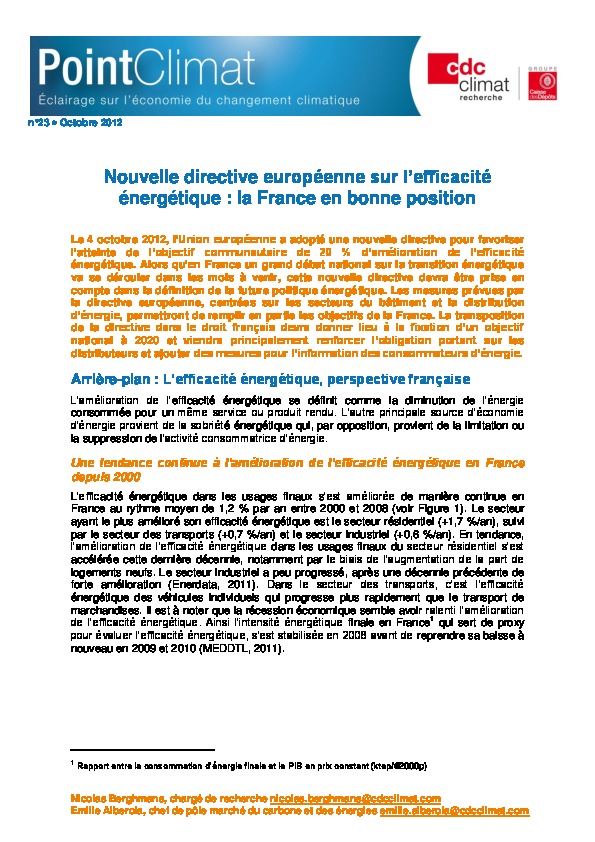The new European Energy Efficiency Directive: France is on track
By Nicolas Berghmans and Emilie Alberola
On October 4th 2012, the European Union adopted a new Directive in order to help reach the common target of a 20% improvement in energy efficiency in 2020. At a time when a major national debate on energy transition is set to take place in France, this new directive will need to be taken into account when defining future energy policy. The measures specified in the European Directive, which focus on buildings and energy suppliers, will enable part of France’s goal to be met. The transposition of the Directive into French law will result in the setting of a national target for 2020, and will primarily reinforce an existing requirement that applies to energy suppliers, as well as adding measures aimed at informing energy consumers.
